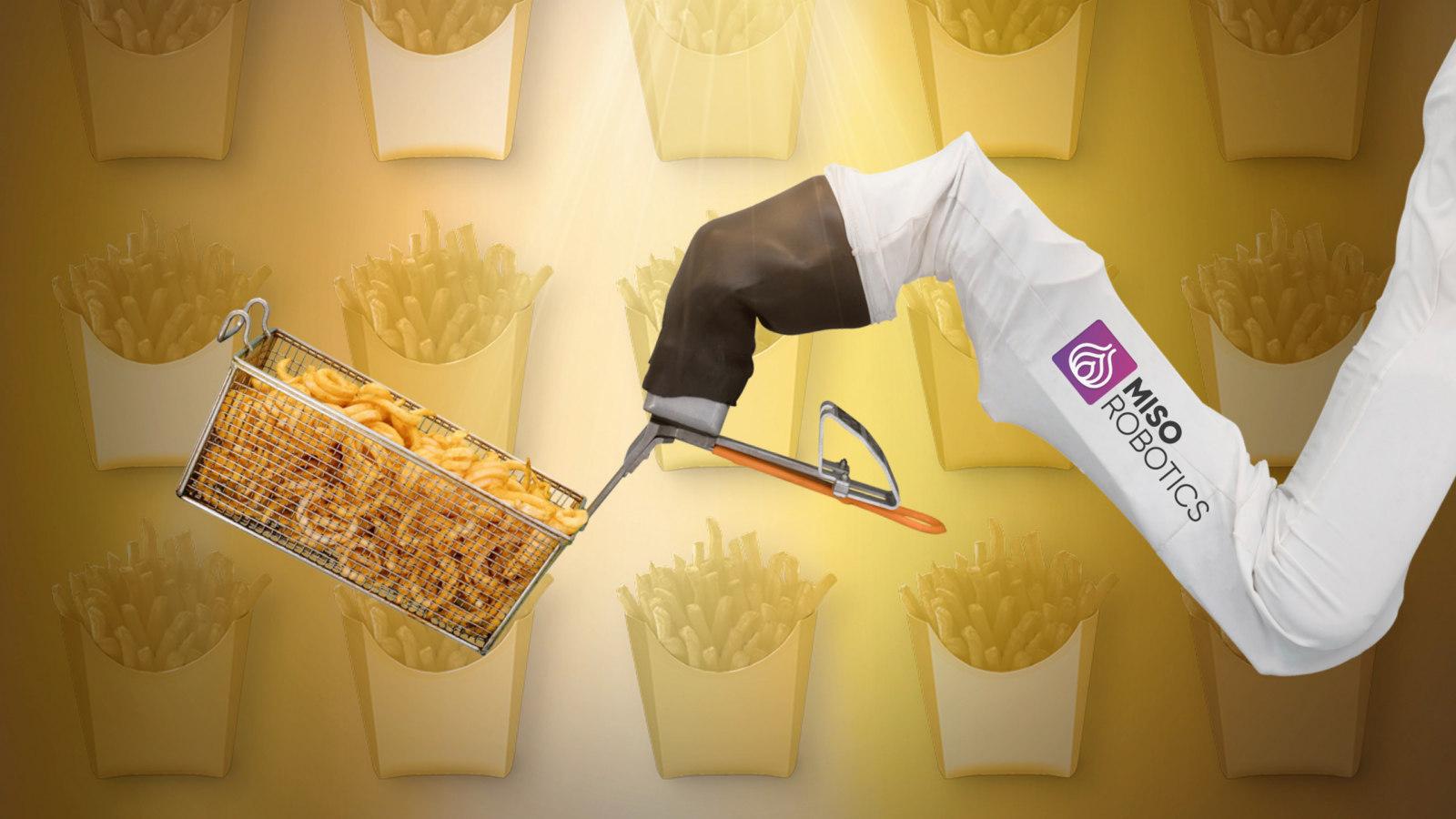Good morning.
Even the brightest students will struggle with this test: living without their phones.
This week, California Gov. Gavin Newsom announced he wants to restrict smartphone use among students during the school day — a policy the Los Angeles Unified School District is already putting into action. The announcement comes shortly after US Surgeon General Vivek Murthy called on Congress to require that social media platforms implement warning labels for their mental health impacts on young people. Textin’ in the boys’ room is going to be the new smokin’ in the boys’ room.
The AI Bubble isn’t as Bubbly as It Looks
AI isn’t a bubble, it’s a soufflé, and it’s already started to de-puff.
The value of some AI-linked firms has indeed gone stratospheric — the biggest being chipmaker Nvidia, whose market cap this week surpassed Microsoft’s to take the crown of world’s most-valuable company. But Nvidia is an outlier, not just among chipmakers but AI hypebeasts in general, according to a new Financial Times analysis published Wednesday.
To Nvidia and Beyond
Our regular readers will be pretty familiar with Nvidia’s rise, but as a quick recap: Over the past 10 years, Nvidia’s stock has gone up by around 28,000%. Over the same time period, Microsoft’s stock went up a paltry 825%. But Nvidia’s rise isn’t because it builds verbose chatbots or uncanny image-generators; its value has skyrocketed because it underpins the physical supply chain behind generative AI products like OpenAI’s Chat-GPT, so much so that the G7 may be preparing to step in. It’s also a fairly simple case of good numbers, as Nvidia’s revenue has seen consistent quarter-on-quarter revenue growth. In its most recent earnings report, Nvidia said revenue vaulted 18% compared to the previous quarter, and 262% year-over-year.
But Nvidia and its hardware do not reflect the reality for broader, more software-anchored AI companies, most of which remain technologies in search of a business model. The FT examined the stocks belonging to companies in Citi’s “AI Winners Basket” and found that more than 50% of those firms have lost value this year — a significant deflation given 75% of them rose in value in 2023. It also found AI investment funds have had a much more ambivalent 2024 than the year before, suggesting a broad downturn:
- It’s possible that we’re at the stage of the generative AI hype cycle when investors are more discerning about which companies with an “.AI” suffix they give money to.
- Companies are also beating the AI drum a little less vigorously. Bloomberg reported in May that references to AI on company earnings calls dropped over 56% from Q1 of this year to Q2.
“When I ask our analysts outside the tech sector if they have significantly changed their cost or revenue projections as a result of AI, there’s a lot of shrugging of shoulders, which says to me that this is evolution, not revolution,” UBS chief strategist Bhanu Baweja told Bloomberg at the time.
Going Soft: Nvidia also has a soft side. This week it agreed to buy Shoreline, a startup that makes software for automatically tracking down and troubleshooting problems in computer systems. A source told Bloomberg the deal pegs Shoreline’s valuation at $100 million, although neither company confirmed it. Nvidia is also an investor in Perplexity, which wants to make a Google-killing AI search engine — but on Wednesday, Wired published a piece accusing Perplexity of scraping bits of the web (including Wired’s own journalism) it said it wouldn’t. The magazine also said Perplexity yielded seriously false answers to questions — like wrongly summarizing a Wired article to say it accused a named police officer of committing a crime. We don’t need our AI to fake it until it makes it.
Remember When Humans Did That?

A “powerful solution.”
That’s how NVIDIA described Miso’s automated kitchen robots.
It’s why the chip-making giant handpicked Miso for a powerful collaboration: integrating its AI vision tech into their Flippy robots.
Flippy’s already helped brands like White Castle and Jack in the Box reach new heights by frying 2m+ baskets of food.
And with access to NVIDIA’s tech and collaborative expertise, Miso could boost profits up to $24b a year for the $1t fast food industry.
170 fast food brands and 100,000+ U.S. locations are waiting. Which makes the timing of this opportunity in light of this year’s next-gen Flippy rollout so intriguing.
Learn more about the Miso Robotics investment opportunity by clicking here.*
Millionaires are Fleeing the UK in Droves in Favor of Tax Havens like the UAE
London isn’t calling.
Data from Henley & Partners’ newly released Private Wealth Migration Report shows once-popular destinations for the upper crust in Europe and the UK are losing ground to relative newcomers like the UAE and Singapore.
Migrating Millionaires
Across the globe, a record 128,000 millionaires are expected to relocate this year as “the world grapples with a perfect storm of geopolitical tension, economic uncertainty, and social upheaval,” Dominic Volek, group head of private clients at Henley & Partners, said in the report. Henley predicts the two largest losers will be China, with a net loss of 15,200 millionaire residents, and the UK, with a net loss of 9,500.
While the reasons for millionaire migration are both economic and social (Italy is set to see some 2,200 new millionaires grace its shores in 2024, presumably in pursuit of Aperol), experts cite changing tax regimes as a primary driver of migration. Earlier this year, UK chancellor Jeremy Hunt abolished a 200-year-old policy that shielded “non-doms,” or Brits with a permanent tax residence outside of the kingdom, from UK tax on foreign income. The length of this perk will be reduced from 15 years down to four — or abolished altogether under the Labour Party — causing many UK citizens to pursue alternative citizenship.
Meanwhile, the UAE is in pole position for the third consecutive year, with Henley predicting 6,700 monied migrants will move to the elective monarchy in 2024:
- With a 0% income tax, 0% inheritance tax, 0% capital gains tax, and an approachable golden visa program, the UAE and Dubai are a sanctuary for those looking to shield assets.
- But even in tax heaven, a push to diversify receipts away from volatile oil and gas revenue has meant the introduction of new levies. The country announced a 9% corporate tax that took effect in 2023, after adding a 5% VAT in 2018.
What About US? Traviss Cassidy, a professor of economics at the University of Alabama, recently completed one of the largest longitudinal studies on the effect of taxation on a state’s tax receipts and migration patterns. While Cassidy expected a certain level of intra-country migration over the 110-year-period being studied, he told The Daily Upside he was “surprised at the magnitude of migration,” particularly among mobile middle-income and high-income earners in the post-WWII period. In our current WFH era, Cassidy added that “people’s decisions are even more sensitive to taxation.”
The UK Rental Market is Americanizing

Why sell houses when you can rent to people who can’t afford to buy?
Berkeley Group, a UK-based housebuilding firm, announced on Wednesday that it’s going to add a string to its bow by entering the rental market. Historically Britain’s rental market has been dominated by small, independent landlords, but increasingly institutional investors, including so-called US mega landlords, have been gaining market share.
Tough Numbers
British newspaper The I reported in February that build-to-rent investment in the UK hit a record high of £4.6 billion ($5.9 billion) in 2023. Of that investment, more than a third came from North American companies; the biggest purchase of that year came from a Blackstone-backed firm called Leaf Living, which bought 1,500 homes. Earlier this month, Blackstone bought 1,750 new homes to rent out.
Berkeley Group’s move into the rental market signals large home-grown corporations are taking notes from their American cousins, and adapting to an unusual housing market:
- Berkeley Group CEO Rob Perrins told the Financial Times that the firm was responding to the fact that “rents have gone up so much and house prices haven’t moved in the same vein.”
- In February, the average monthly rent in the UK rose 9% from the same month the year before, the biggest increase since records began nine years ago. House prices are not rising at nearly the same pace — their annual growth rate sat at 1.3% in May — but they are still sitting at record highs.
We’ll Never Get There at This Rate: This week did see a breath of hope for the UK as inflation came down to to the government’s target 2% in May, but it’s not quite enough of a relief for the Bank of England to let up on interest rates just yet: The BBC reports the BoE is expected to hold interest rates steady at 5.25% to make sure things stay nice and even, with banks holding out hope for an August rate cut. Keep calm and carry on, chaps.
How Does a Free Personal Assistant Sound? Meet Leo, your built-in AI sidekick. Here is how it works: open Brave’s private browser, type a question directly into the address bar, and let Leo help you with anything from analyzing spreadsheet data to generating financial memos. Unlike some artificial intelligence systems, Brave keeps your conversations private. Start saving time with Leo today.
Extra Upside
- Friends again: Elon Musk strikes a more cordial tone trying to court X advertisers.
- Hot and cold: Katy Perry-backed food firm Bragg is reportedly up for sale.
- Here is what C-Suites and Wall Street are reading: Semafor Business, a twice-weekly newsletter penned by two of Wall Street’s best reporters, brings original scoops, insights, and exclusive interviews. It’s the perfect addition to your news digest. Sign up for free here.**
** Partner
Just For Fun
Disclaimer
*This is a paid advertisement for Miso Robotics’ Regulation A offering. Please read the offering circular at invest.misorobotics.com.

